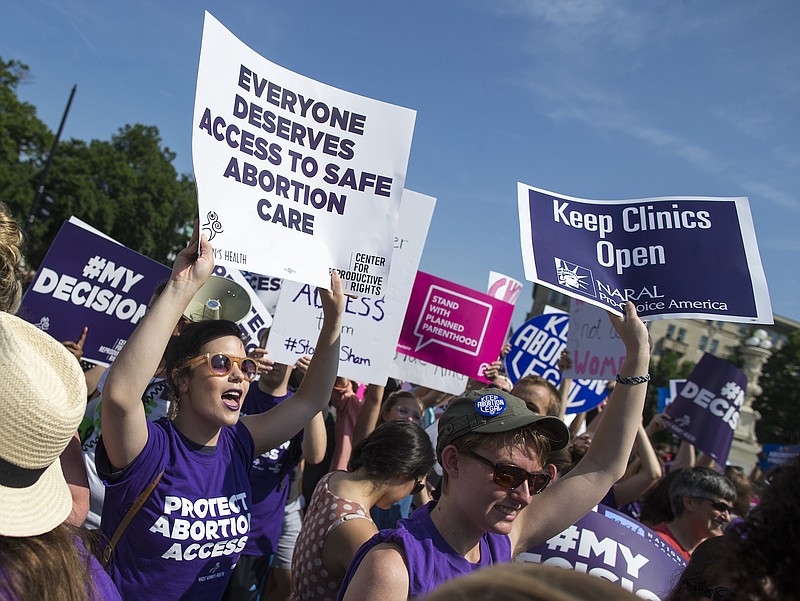There is no denying the scope of the Supreme Court's decision on Monday to strike down parts of a Texas law intended to reduce the number of abortion providers there. The 5-3 decision, the most far-reaching abortion ruling in a quarter century, said restrictions enacted by the Texas legislature violated the 1992 Planned Parenthood v. Casey ruling that barred placing "undue" burdens on a woman's ability to obtain an abortion.
The Texas law required abortion clinics to meet the standards of ambulatory surgical centers and doctors who provide abortions to have admitting privileges at a nearby hospital. Its intent, to reduce the number of abortion providers in the state, proved true. Texas had 41 such providers before then-Gov. Rick Perry signed the law in 2013. After the restrictions became effective, there were 22. Had the court upheld the law, another 10 providers would have had to close.
Monday's ruling means similar laws in several states, including Tennessee, could also be deemed unconstitutional and thus unenforceable. And as The New York Times pointed out Tuesday, it is "also sure to energize anti-abortion forces and make abortion of central issue in the presidential campaign."
Ironically, the decision comes at a time when, as The Associated Press reported Monday, since 2010 the number of abortions nationwide has declined by 12 percent. Just last year, there were fewer such procedures since the court upheld abortion as a constitutional right in the 1973 Roe v. Wade decision. The drop occurred in states with stricter regulations and in those with fewer.
A precise explanation for the decrease may be elusive, but the AP said a correlation between increased access to contraception and a decrease in unplanned pregnancies has been documented since the late 1990s. That is especially the case in pregnancy rates among teens, which have dropped sharply for much the same reasons, as have pregnancies among adults.
The latter also have better access to birth control provided by the Affordable Care Act's exclusion of co-pays for contraceptives approved by the FDA (and the expansion of Medicaid in most states). That suggests further reductions in abortions in the future.
Legal and political contentiousness has defined the abortion issue since 1973 but neither is likely either to resolve those differences or to end elective abortions altogether. Anti-abortion groups assert that the decrease in abortions is attributable to a greater respect for life itself, not just to proposed legislative remedies. The same could be said for opponents who resort to violence.
